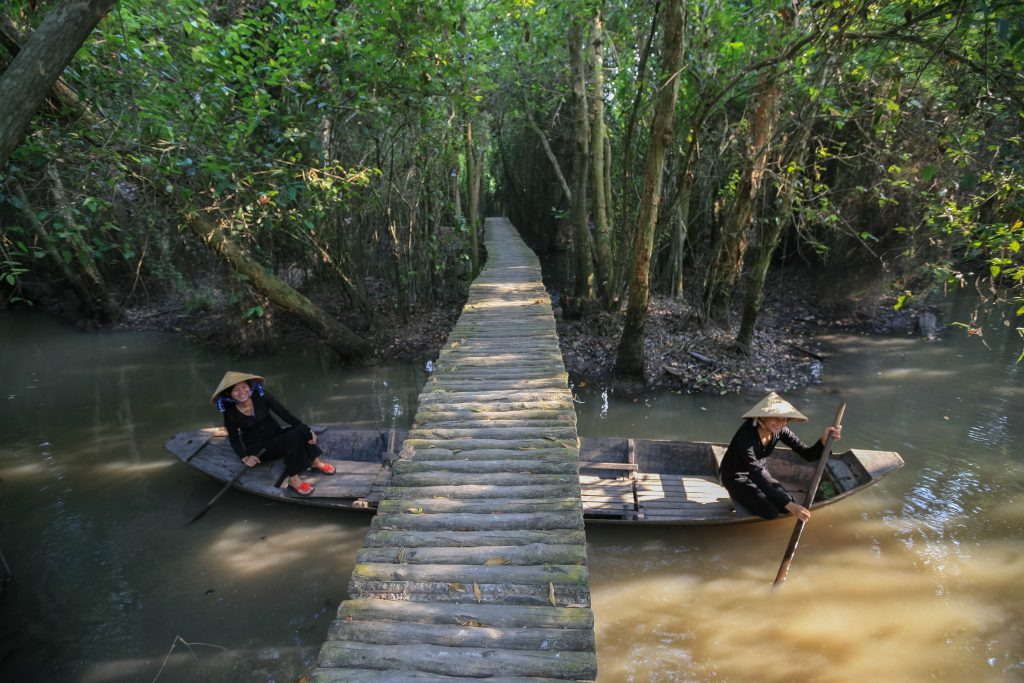
The Canals Flow Through The Gardens
The Mekong Delta with a system of canals flows through rich gardens.
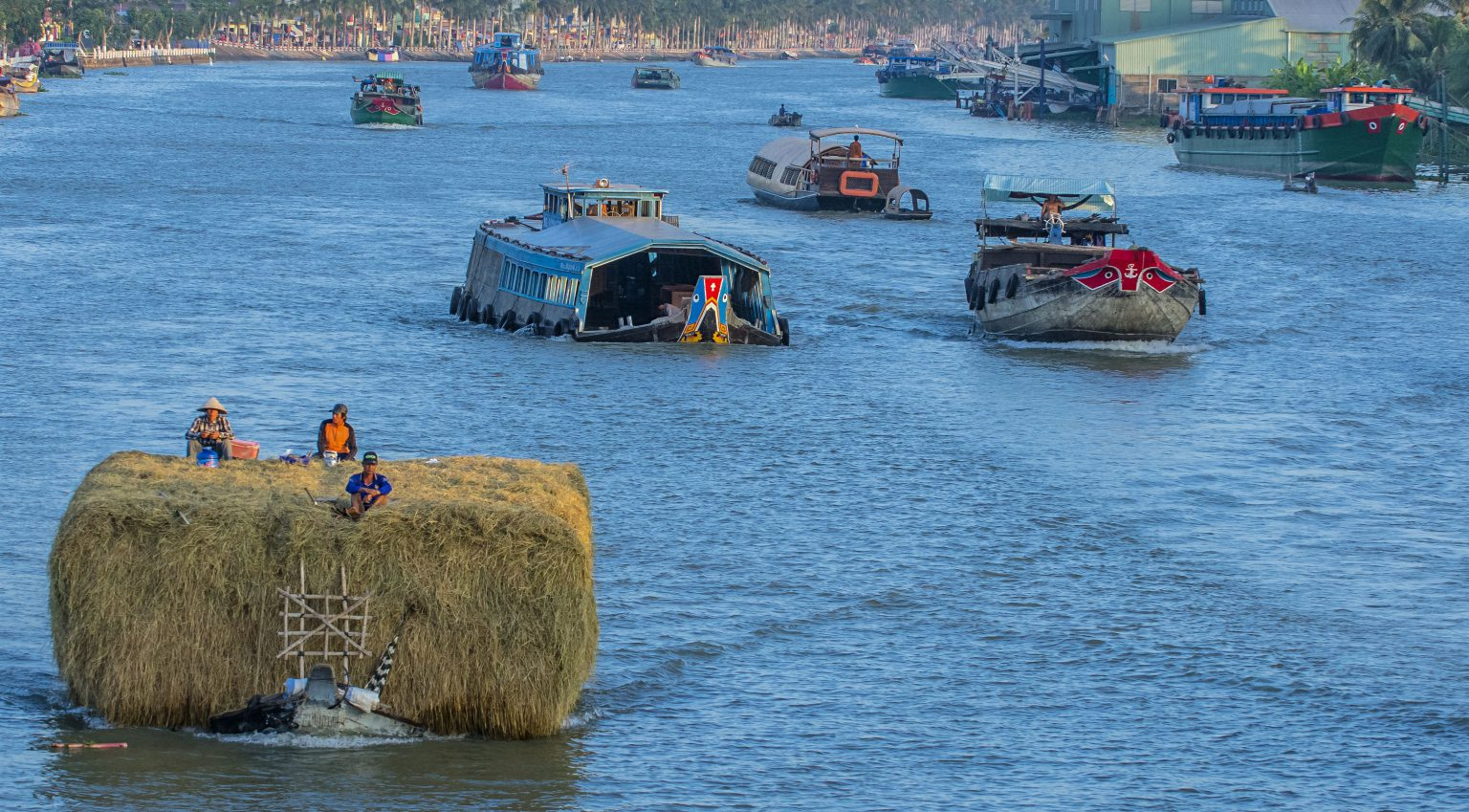 The Mekong Delta, also known as the "Land of Nine Dragons," is the largest "granary" in the country and is formed when nine tangerine-wrapped rivers flow into the sea. A canal that is intertwined with these nine rivers forms a special network of "waterways" connecting towns, farms, and orchards. This is the reason why people refer to this area as "gardening."
The Mekong Delta, also known as the "Land of Nine Dragons," is the largest "granary" in the country and is formed when nine tangerine-wrapped rivers flow into the sea. A canal that is intertwined with these nine rivers forms a special network of "waterways" connecting towns, farms, and orchards. This is the reason why people refer to this area as "gardening."
A Kingdom of Phu Nam existed on the Oc Eo civilization's foundation from the beginning of BC to the fifth and sixth century (taking the name of Oc Eo place in Vong Khe commune, Thoai Son district, An Giang province). A vast river that flows into the sea and was eventually given the name Mekong River can be found in this low, flat land, according to the Book of Liang. A boat excursion back into the Tien Giang River part was also documented by Chau Dat Quan in the 13th century when the area was sparsely populated and the scenery was unspoiled: "People first noticed the empty field without a single stump halfway through their journey through the estuary. Beyond eye level, all that is seen is grass and an abundance of trees. In this area, hundreds of thousands of wild buffalo congregate."
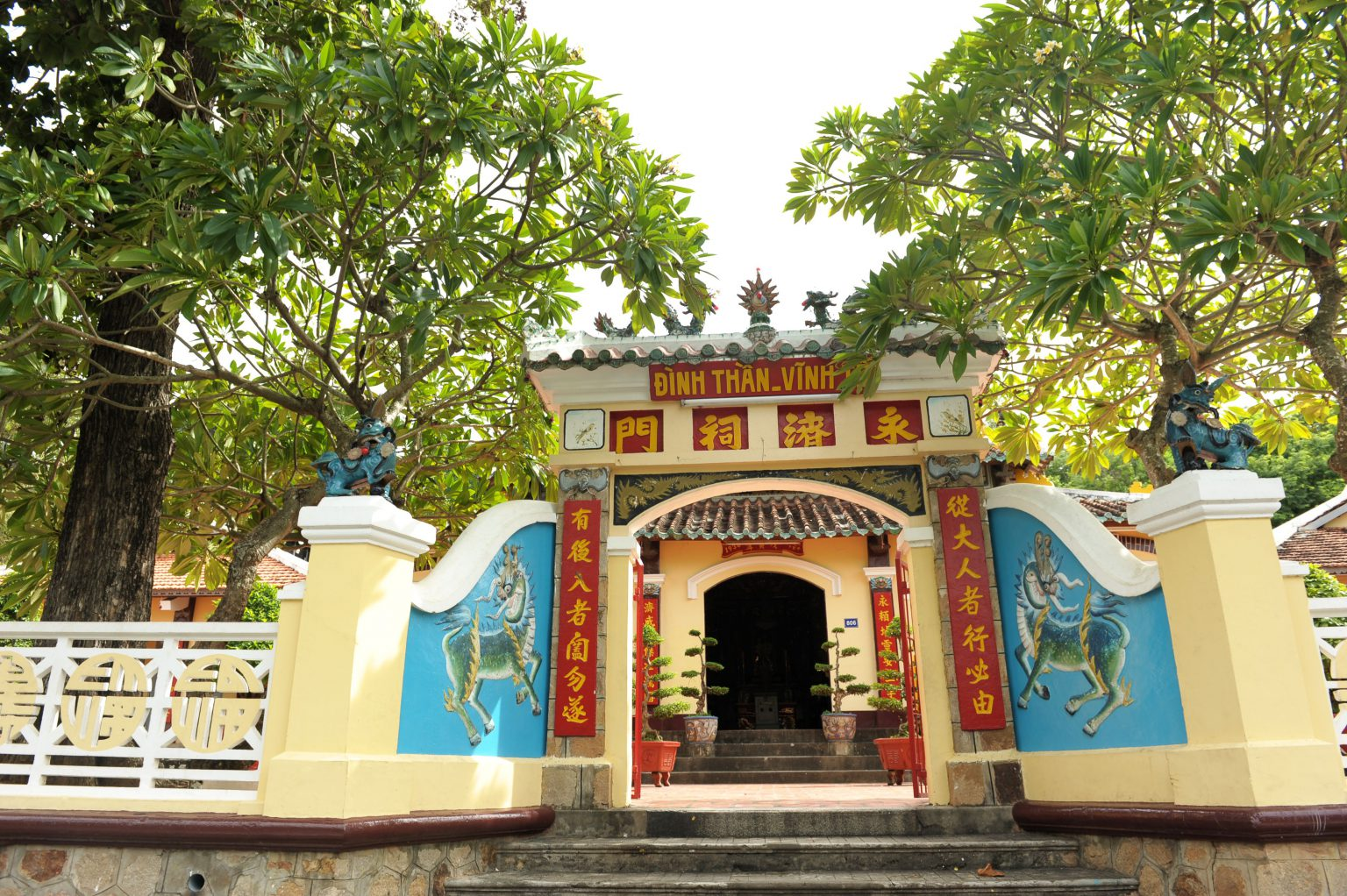 The policy of migration, reclamation, and hamlet building in the garden area evolved up to the Nguyen era. In addition to the requirement for water conditioning for agriculture and border consolidation, economic and commerce needs necessitate a number of interregional "waterways". There are already several chit canals, but they are not yet active. As a result, the imperial court coordinated the canal's excavation. The canals are partially to blame for the lush garden area.
The policy of migration, reclamation, and hamlet building in the garden area evolved up to the Nguyen era. In addition to the requirement for water conditioning for agriculture and border consolidation, economic and commerce needs necessitate a number of interregional "waterways". There are already several chit canals, but they are not yet active. As a result, the imperial court coordinated the canal's excavation. The canals are partially to blame for the lush garden area.
Nguyen Van Thoai, also known as Thoai Ngoc Hau, was dispatched by the Nguyen Dynasty as the general in charge of digging the canal. He oversaw the construction of the more than 30-kilometer-long canal in 1818 that connected Gia Khe Creek and Long Xuyen Canal (Rach Gia). He was awarded by Emperor Jialong, who adopted the name he gave the canal (Dialog Ha), whose mountain's name was Dialog Son (which the wild people called Collapse Mountain). The current location of Dialog Giang commune is still on the banks of the canal he previously constructed.
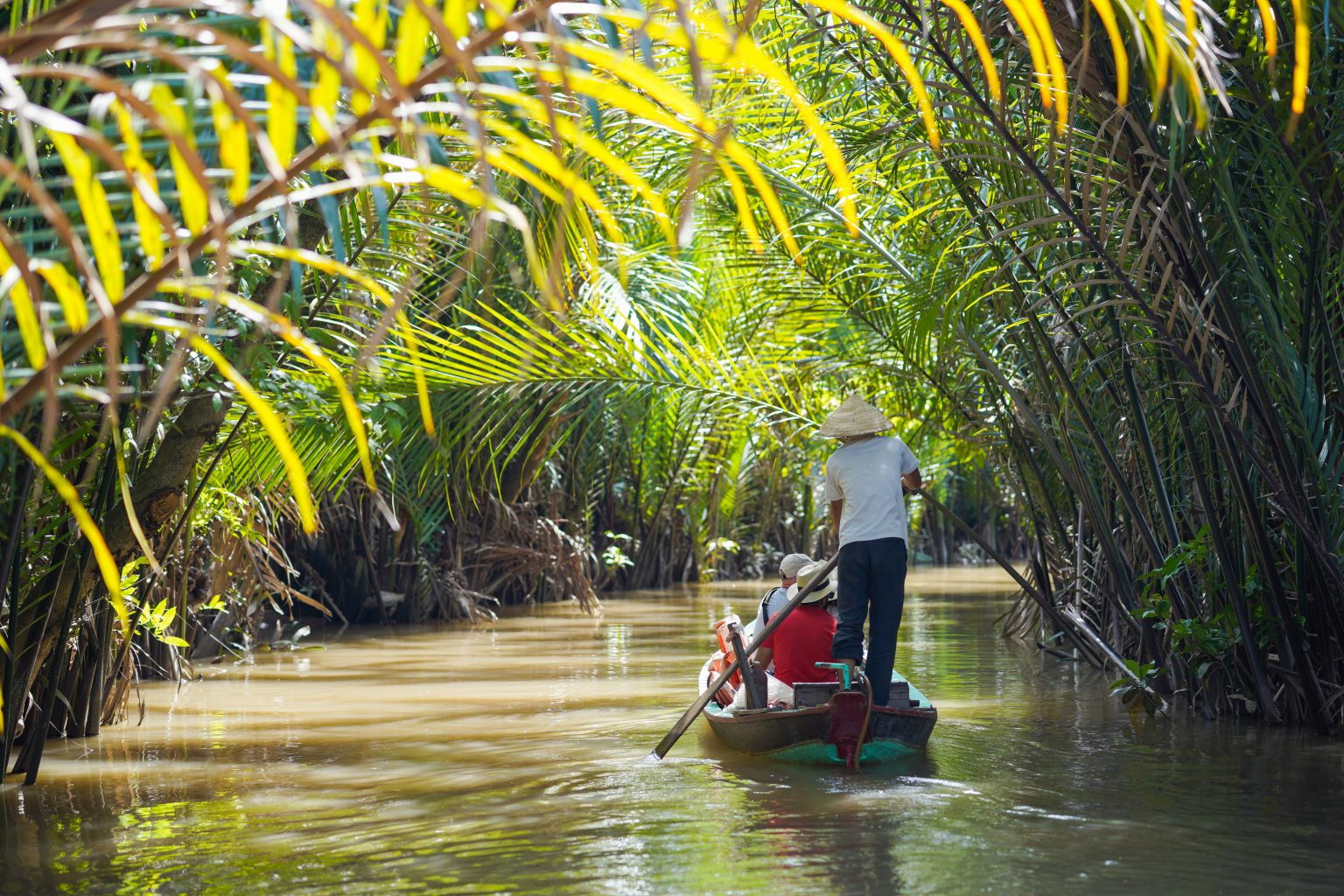 It would be impossible to discuss Thoai Ngoc Hou's canal-digging career without mentioning his wife, Mrs. Chau Thi Vinh Te. She was a gardener who pushed for the construction of canals along the Hau River in An Giang. Emperor Minh Mang renamed several places in her honor, including Vinh T Mountain and Vinh Te Canal. When she passed away, "Vinh Te Ha" (Vinh Te River) and her name were once more carved on Cao Dinh. The largest and most stunning of the nine bronze peaks, this peak serves as the shrine for Gia Long, the first Emperor of the Dynasty.
It would be impossible to discuss Thoai Ngoc Hou's canal-digging career without mentioning his wife, Mrs. Chau Thi Vinh Te. She was a gardener who pushed for the construction of canals along the Hau River in An Giang. Emperor Minh Mang renamed several places in her honor, including Vinh T Mountain and Vinh Te Canal. When she passed away, "Vinh Te Ha" (Vinh Te River) and her name were once more carved on Cao Dinh. The largest and most stunning of the nine bronze peaks, this peak serves as the shrine for Gia Long, the first Emperor of the Dynasty.
The Vinh Te canal is mentioned twice in the Book of Dai Nam Nhat Thong Chi: "The river dug is 105 and a half miles long, continuing with the ancient river for an additional 205 and a half miles to the mouth of The Ha Tien Sea. The trade, the border patrols, and the new river road all benefited greatly from that point on."
Economically, the Vinh Te canal has delivered fresh water from the Tien Giang River to help with "sour brass, salt washing" in the That Son plain and Long Xuyen Quadrangle region as well as to help with soil stabilization in border areas and international trade. Numerous new urban districts, such as Chau Doc and Ha Tien, as well as a lush garden region like the Song of Dao, have been developed thanks to the canals that connect to natural rivers and canals:
"I hope to marry you back to the garden,
Eat boiled squash, melon and cook soup"
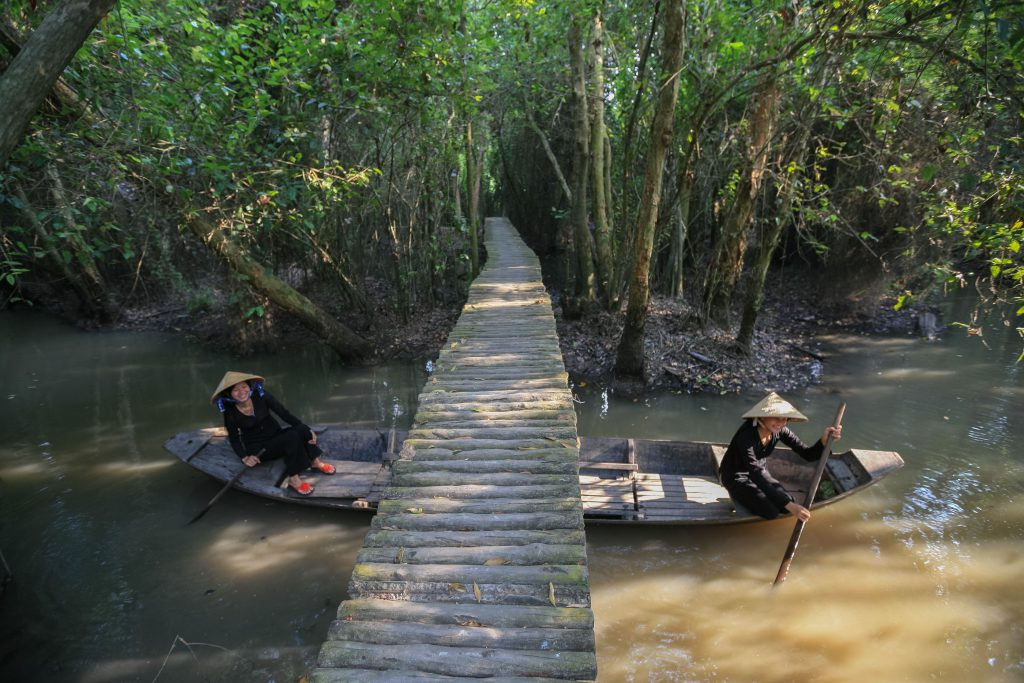 Today, the Mekong Delta is well known for its garden tourism. Nobody who comes here will forget the distinctive "floating marketplaces." Statistics show that there are 160 floating markets in Tien Giang, 175 in Ben Tre, 203 in Dong Thap, and 110 in Tra Vinh. Fruit trees, a variety of delectable shrimp, fish, oysters, and snail species, which are unique to the brackish waters of the garden, are also available at the floating market.
Today, the Mekong Delta is well known for its garden tourism. Nobody who comes here will forget the distinctive "floating marketplaces." Statistics show that there are 160 floating markets in Tien Giang, 175 in Ben Tre, 203 in Dong Thap, and 110 in Tra Vinh. Fruit trees, a variety of delectable shrimp, fish, oysters, and snail species, which are unique to the brackish waters of the garden, are also available at the floating market.
The garden soil is constantly rich in fertile silt that is ideal for growing rice and planting trees like durian, jackfruit, mango, rambutan, and dragon fruit that are exported everywhere. The "monkey bridge," which is made of a few logs but connects many lyrical love encounters, should be built here where there are many rivers and canals.
Rivers and canals are plentiful, which is good for gardeners "benefit greatly with little effort. The area is vast, and food is abundant "as described in The Great Southern Unification Book. People live somewhat liberal lives and enjoy singing as a result. They enjoy singing Reformation and Amateur Singing, which UNESCO has designated as part of humanity's Intangible Cultural Heritage.
Source: Prof. Trinh Sinh, Ba Ngoc, Jet Huynh, Le Bich, Tonkin